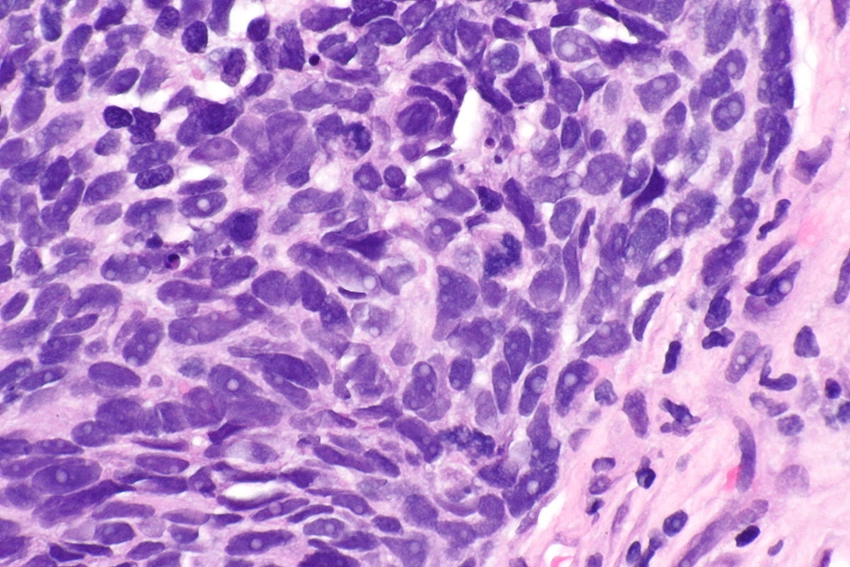
Wikimedia Commons
Data from two clinical trials have shown that second-generation anaplastic lymphoma kinase (ALK) inhibitor alectinib (Alecensa, Roche) reduces central nervous system (CNS) progression in ALK-positive non-small cell lung carcinoma (NSCLC).
Secondary analysis of the ALEX trial, where 303 previously untreated patients were assigned to alectinib or crizotinib, showed that those without brain metastases at baseline were less likely to go on to develop central nervous system (CNS) progression when assigned to alectinib (4.6% vs 31.5%).
A subgroup analysis, which included 122 patients with unsymptomatic brain metastases at baseline, showed that they were less likely to experience CNS disease progression when assigned to alectinib (16.0 vs 58.3%).
The findings, published in the
New England Journal of Medicine
, also indicated significantly higher 12-month progression-free survival with alectinib vs crizotinib (68.4 vs 48.7%).
Crizotinib is the current standard first-line therapy for patients with NSCLC containing a rearrangement of the ALK gene. However, brain metastases are common and the drug does not penetrate the CNS. Many patients also develop resistance to crizotinib.
Alectinib, one of several second-generation ALK inhibitors, is able to cross the blood-brain barrier and has previously been demonstrated active in the CNS.
It was approved as second-line therapy for ALK-positive NSCLC in Europe and this week was added to the Medicines and Healthcare products Regulatory Agency’s (MHRA’s) early access to medicines scheme for first-line use in advanced disease.
The ALUR trials explored alectinib as second-line therapy, and demonstrated that the median progression-free survival was 9.6 months compared with only 1.4 months for chemotherapy.
The study involved 107 patients whose disease had progressed after a previous first-line combination treatment of both platinum-based chemotherapy and crizotinib. They were randomly assigned to either alectinib or chemotherapy until progression, death or withdrawal.
The researchers, who will present the findings at this week’s ESMO 2017 Congress in Madrid, found that while those assigned to chemotherapy had no detectable CNS overall response, those in the alectinib group had a CNS overall response rate of 54.2%.
“CNS data are extremely relevant for these patients — the brain is a frequent site of metastasis for them – and these results are important because if we’re aiming to prolong survival we must aim to preserve their neurocognitive capacity,” said study investigator Silvia Novello, from the University of Turin, Italy. “A drug that has this activity on brain metastases can allow us to modify treatment and reduce the need for whole brain radiotherapy.”


